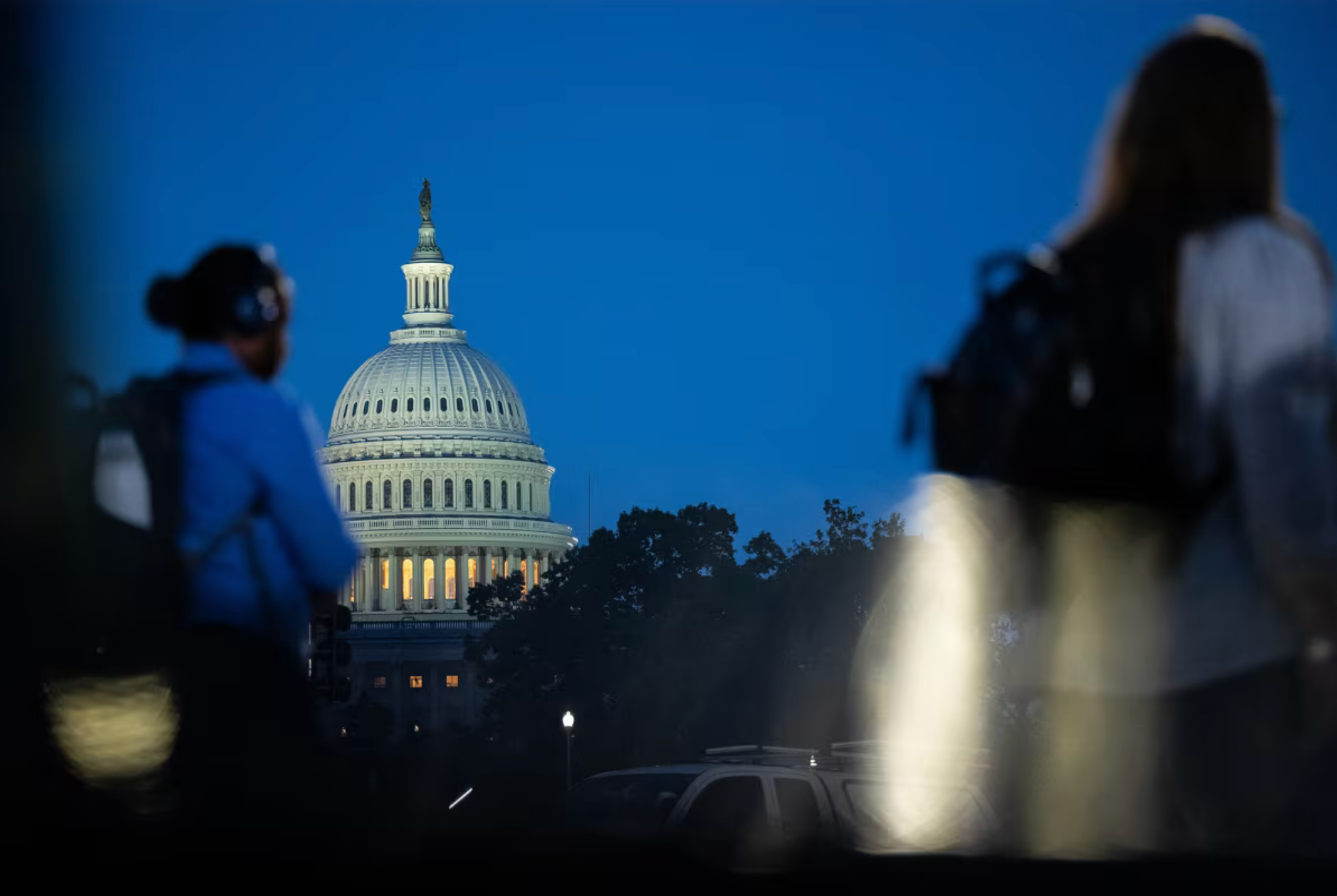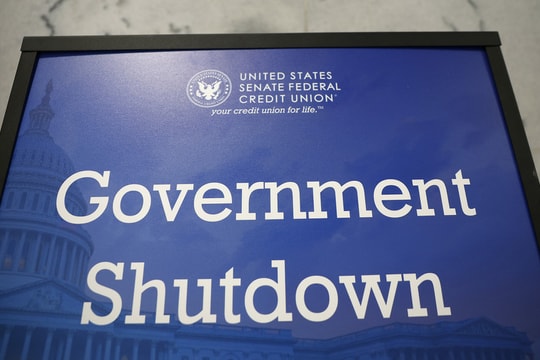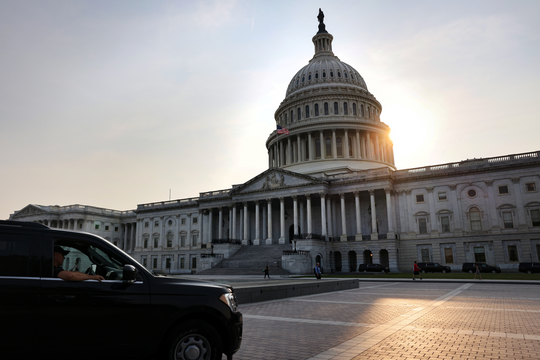4 scenarios for the US government to reopen
The US government is on the verge of entering a state of operational paralysis, and there is little sign of a solution this weekend.

Normally, in crises like this, things seem deadlocked until one side suddenly makes a concession and things are resolved. But this time, the situation is unusual: The intertwined politics and interests mean this budget crisis could last longer than previous ones, according to CNN.
With that context, CNN presents four scenarios that could soon lead to an end to the US government shutdown.
Scenario 1:Democrats concede - this may be the most likely scenario.
Explaining this, CNN said: First, history shows that "government shutdowns" almost always end this way: The party making the request often does not get what it wants, because the American people generally do not support using the budget crisis as a political bargaining tool.
Second, cracks are beginning to appear in the Democratic Party’s front. Three Democratic senators voted for the temporary bill, which Republicans called “clean”—that is, without any political conditions. If five more senators waver, the Democrats will not be able to maintain their strategy of blocking votes with protracted debate.
Third, the situation is increasingly unfavorable for Democrats. Although early polls show that a majority of Americans blame Trump and the Republicans, this is rare, because it was the Democrats who refused to vote for the budget.
Over time, as the real-world effects of a government shutdown become clearer — for example, troops not getting their paychecks on October 15 — the public’s patience with Democrats’ tactics may wear thin, even if they remain sympathetic to the goal of preserving Obamacare’s expanded health care benefits.
Second scenario,agreement for future Obamacare negotiations. CNN said this is probably the most viable way for Democrats to get something out of the current crisis.
It's not that Republicans will give in to all of Democrats' demands in the budget bill, but they may commit to a later discussion about extending Obamacare's expanded health benefits.
In fact, Republicans also have political reasons to maintain these benefits, at least in some form. According to a KFF survey, 78% of Americans—including 57% of MAGA voters—support extending the benefits, and many of the beneficiaries live in Republican states.
Some Republican senators have also proposed compromise options, creating pressure from within the party to end the impasse soon. And President Trump may support this option because, although he opposed Obamacare, he is not as strict on the budget deficit as many other members of the party.
But there are doubts about this approach. Democrats say that simply promising “future discussions” is not enough, while Republicans don’t want to set the boundaries of negotiations while the government is paralyzed. Furthermore, making any commitments now could be seen as a “victory” for Democrats, forcing Republicans to swallow a “bitter pill” in exchange for ending the crisis.
Third scenario,Another concession from Republicans. Obamacare subsidies are likely to be“It is the easiest “card” to concede in the current political climate, but it is not the only option on the negotiating table.
Part of the reason Democrats are reluctant to pass a budget is that they no longer trust the Trump administration and Republicans to follow through on the terms passed by Congress. That trust has been eroded by the Trump administration’s repeated attempts to arbitrarily nullify congressionally approved spending, disregarding legislative will.
Alternatively, Democrats could seek some other form of concession — symbolic or political, just to save face and justify the decision to reopen the government.
Scenario 4,Republicans conceded. This is probablyThe least likely scenario, with almost no precedent in recent history. However, if the Democrats hold firm to the end, and the Republicans eventually give in to their demands, how might that play out?
One possibility iscAs the crisis dragged on, and opinion polls continued to show that people blamed Mr. Trump and the Republicans, political pressure mounted, forcing them to find a way out.
Or perhaps the American people have made it clear they want to maintain Obamacare subsidies, giving Democrats a reason to stand firm and demand a more concrete deal rather than vague promises.
Another scenario: Republicans begin to fear tarnishing their image by being seen as the party that wants to strip health care from millions of people. Or, more simply, President Trump loses patience, deciding that this concession is not worth much, especially when Republicans may have to make it later whether they like it or not. Or the Trump administration may go too far in its retaliatory cuts, causing the crisis to backfire and come back to bite them—something some Republicans have warned about.
However, this scenario is almost entirely hypothetical. If it were to happen, it would mark a major shift in the balance of power in Washington, which is exactly why President Trump would do everything he could to avoid making concessions.






